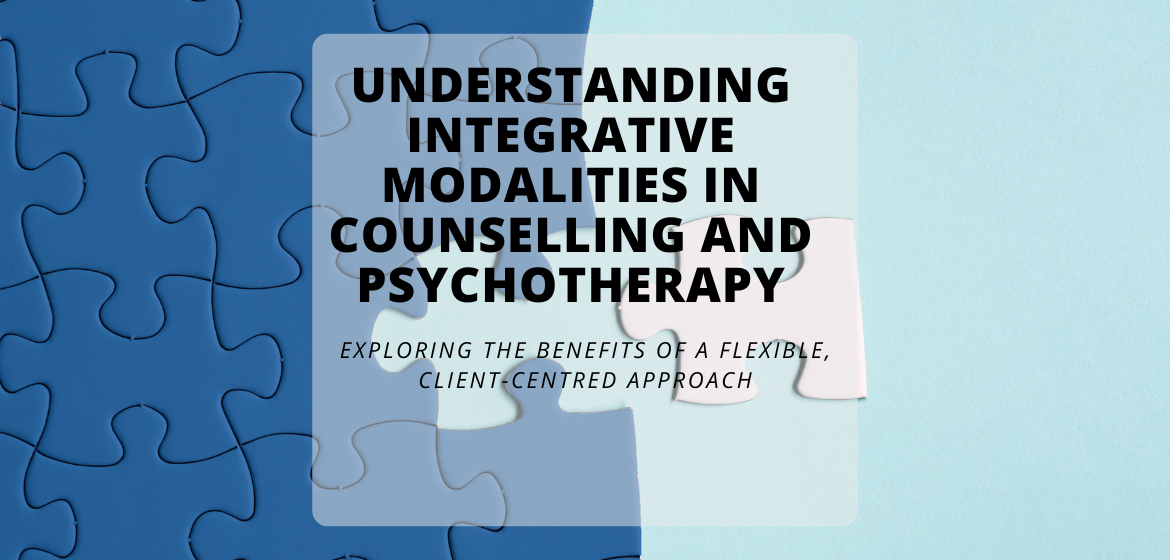
Understanding Integrative Modalities in Counselling and Psychotherapy: Exploring the Benefits of a Flexible, Client-Centred Approach
When it comes to counselling and psychotherapy, no two clients are exactly alike—and neither are the methods that support healing. While traditional approaches often follow a singular framework, today’s practitioners are increasingly embracing a more flexible and inclusive model: integrative therapy.
This article explores what integrative modalities mean in practice, why they’re gaining popularity, and how they support effective therapeutic relationships.
What Do We Mean by “Integrative”?
Integrative counselling and psychotherapy involve drawing on techniques and theories from a variety of therapeutic models. Rather than sticking to just one method, like cognitive behavioural therapy (CBT) or psychodynamic therapy, an integrative approach allows therapists to tailor their work to each individual client.
This might involve combining elements of CBT with mindfulness techniques, or using aspects of person-centred therapy alongside trauma-informed somatic work. The goal is always the same: to respond to the whole person, not just the problem.
Why Integration Matters
Life is complex. People come to therapy with layered experiences shaped by culture, family, personality, and environment. Because of this, a rigid, one-size-fits-all approach often falls short.
An integrative approach allows therapists to be more adaptable and responsive. For example:
-
A client dealing with anxiety might benefit from both grounding techniques and deeper exploration of past attachment wounds.
-
Couples might work through emotional disconnection using a blend of systems theory and emotionally focused therapy.
-
Young adults navigating identity questions could be supported with existential and narrative approaches.
This kind of flexibility not only respects the uniqueness of each client, it also improves outcomes by using what works best, when it’s needed most.
Common Integrative Approaches
There are several recognised integrative frameworks that therapists use in practice. Some of the most popular include:
-
Eclectic Therapy: Selects methods from different schools based on the client’s needs.
-
Multimodal Therapy: Looks at multiple aspects of a person’s experience—such as thoughts, feelings, behaviours, and relationships—to guide treatment.
-
Holistic Psychotherapy: Includes mind-body-spirit connections, often using mindfulness, creative expression, and somatic awareness.
These models help therapists work in a way that feels both grounded and adaptable, ensuring the client remains at the centre of the process.
Opportunities and Challenges
Integrative modalities offer several clear advantages:
-
They respect the complexity of human experience
-
They empower therapists to be creative and responsive
-
They can be more inclusive of diverse identities and life experiences
However, integration also comes with responsibility. Therapists need solid training across different approaches, a clear ethical foundation, and an ability to ensure coherence in their work. Without this, integration can risk becoming disjointed or overly eclectic.
Final Thoughts
In a world that’s constantly changing, integrative modalities offer a hopeful and human-centred approach to therapy. By honouring the uniqueness of each person and drawing on a rich toolkit of therapeutic methods, integrative counselling helps people find meaning, connection, and healing on their own terms.
If you’re considering a career in counselling or want to deepen your understanding of integrative approaches, there’s never been a better time to explore this evolving field.
Interested in Learning More?
Find out how you can begin your journey into an integrative form of Counselling and Psychotherapy by checking out our M.A. course here






















